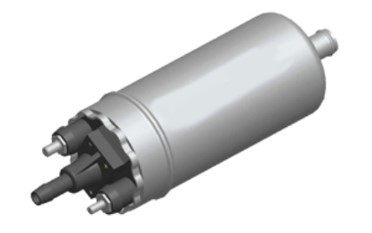
- Sale
- Wheels
- Air Filters
- Brakes
- Exterior
- Engine
- Exhausts
- Suspension
- Gallery
- Information
- Technical
- Alloy Wheel installation
- Avoiding pot holes
- Bedding in tyres
- Correct tyre inflation
- Performance benefits
- Porsche N rated tyres
- Mercedes MO rated tyres
- Quality of a wheel
- Reading your tyre markings
- Selecting the right tyre
- The age of your tyres
- Tyre labelling
- Tyre pressure monitors (TPMS)
- Tyre rotation instructions
- Tyre tread patterns
- What are alloy wheels
- Wheel alignment
- Wheel nut/bolt torque
- Why install larger wheels
- Winter tyres
- Blog
- Services
- Contact

Fuel Systems
Fuel Systems
The fuel system in your car consists of a series of tanks, pipes, valves, pumps and injectors that work together to deliver gasoline from its storage place to a combustion chamber where it can burn at just the right moment. It also has sensors that keep track of all sorts of data such as engine temperature, engine speed and vehicle movement. Let’s look at exactly how your car’s fuel system works.
Purpose of fuel system
The fuel delivery mechanism, sometimes called a delivery system or a fuel distribution network plays a critical role in keeping your vehicle running smoothly. Without adequate fuel getting to all of your engine’s moving parts, you wouldn’t be able to start your engine or keep it running once started. The job of delivering gasoline from tank to engine falls on three main components of your vehicle’s fuel delivery mechanism: the pump, filter and lines that connect these two pieces.
Arrangement of fuel system
Fuel lines, tanks, filters, pumps and injectors are vital parts of a gas-powered car’s delivery mechanism. Diesel engines use glow plugs that preheat combustion chambers for more efficient engine operation. Most modern vehicles also have electronic systems that constantly monitor for abnormal conditions related to engine performance or driving habits.
What is a fuel pump, and what is its purpose?
A fuel pump, sometimes called a gas pump, supplies gasoline to an engine. When you turn on your ignition, electricity from your battery connects with a wire that runs through your fuel line to reach your fuel pump. The other end of your fuel line leads back to your gas tank. The fuel pump’s job is to push gas from your tank into your engine. It does so by drawing fuel out of your tank at a rate determined by how much pressure you apply when turning on your ignition key. If there’s insufficient pressure in your fuel line or some blockage in either location, your car won’t start up or run correctly.

The image of the fuel pump is taken from the website sparepartstore24.co.uk
Classification of automotive fuel pumps
Fuel pumps are typically classified into two categories. The first category includes mechanical pumps. Mechanical fuel pumps rely on mechanical energy from engines to work. Fuel would be sucked from a tank, put through hoses, and enter an engine which then moves a piston up and down (mechanical motion) which forces air into cylinders along with gasoline, thus creating pressure that pushes fuel out of a tube. The second category includes electric pumps. Electric-powered ones do not rely on mechanical energy but rather electricity alone. They usually have built-in sensors that automatically turn them off when there is no more need for fuel. This makes them more efficient than their counterparts.
Causes of failure of the fuel pumps of the car
The failure of a fuel pump often occurs due to its work overload. For example, if you try to start your engine using gasoline or diesel with a high content of additives (such as ethanol or methyl alcohol), you can damage your engine so that it will not start at all. In addition, an incorrectly installed fuel filter may cause problems in your vehicle’s operation.
How to choose a car fuel pump?
Understanding your vehicle’s requirements is essential before choosing a fuel pump. Generally, there are two types of pumps available on today’s market—high-pressure (HP) and low-pressure (LP). Each type has its pros and cons and pricing structure. It all comes down to your personal preferences and budget.
Can I change the fuel pump, or do I need to go to a car repair shop?
Car manufacturers put a lot of time into designing their cars, including manual and automatic transmissions. For that reason, your best bet for quality repairs is at a local auto repair shop. These mechanics know your vehicle inside and out and will be able to fix any problems promptly. If you’re worried about being able to afford quality repairs, your local community may offer assistance programs to help lower-income families keep their vehicles running smoothly.